The World Nomads' Podcast: Indonesia
With around 17,000 islands to choose from, where are the must visits, and if you have your surf board, best surf breaks? Hear the tale of a man chased by headhunters, and tips for traveling the world solo.
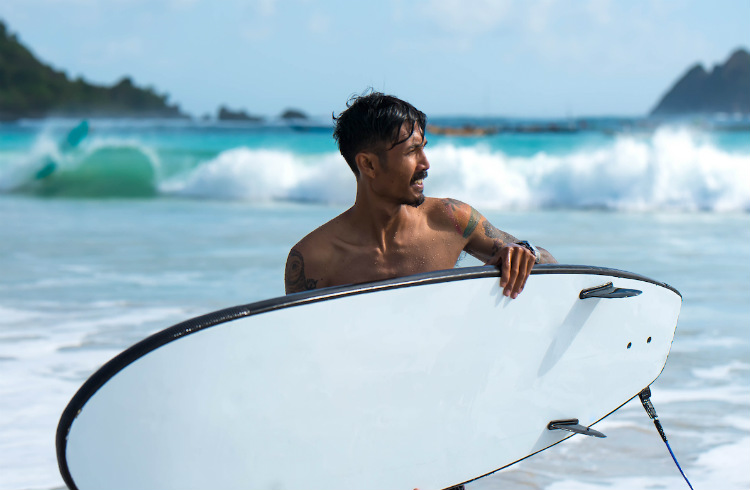 Photo © Getty Images/ti-ja
Photo © Getty Images/ti-ja
Listen Now
Episode 13 Indonesia
Indonesia sits between the Indian and Pacific oceans, and is the world’s largest island country with so many islands no-one really knows the exact number, although it’s estimated to be around 17,000.
Want to know more about Indonesia? Head to our Stories section to delve a little deeper.
What's in the Episode
01:16 - Welcome
04:03 – Quiz Question
04:21 – Eryn Donnelly, solo traveler and author
14:02 – Alex Hatton, World Nomads contributor with the ultimate dinner party story
“…So, on day two he, (the guide) basically said to me, would I like to take a shortcut? And up until this point, the trekking had been pretty easy and I thought I could do it and it would be no more challenging than it had been up until that point. So, I said, "yeah, let's go for it"- Alex Hatton.
25.34 – Checking in with our world nomads
26:25 – Travel news and embracing the sharing culture
30:42 – Blogger Anthony AKA the Travel Tart and his trip to Indonesia
“…I've been there a number of times, and I've been outside of Bali of all places. Now, Bali in itself, you know, is an interesting place but there is so much more to Indonesia than Bali and if you don't go and venture outside to the other 17,000 islands, you're doing yourself a disservice.” – the Travel Tart
36:30 – Surfing in Indonesia with Audrey
43:38 – Quiz Question Answer
45:34 – What’s next in Episode 11
Who's on the Show?
There are two types of travelers in the world, those who go with friends or go it alone. Eryn Donnelly is in the solo travel camp, she visited 21 countries including Indonesia on five continents in a solo journey that lasted 28 months, and began with a one-way ticket to India.
What happened to her along the way changed her outlook on life and inspired to her to be a life coach and the author of a book “Facing Freedom” available on Amazon
Anthony Bianco is a travel blogger who doesn’t take himself too seriously, known as the Travel Tart, Anthony has traveled to over 50 countries including Indonesia.
Alex Hatton is a World Nomads contributor who came to our attention after writing an article about being caught between warring tribes in West Papua. He found himself in trouble trying to get “one up” on his blogging brother the Broke Backpacker.
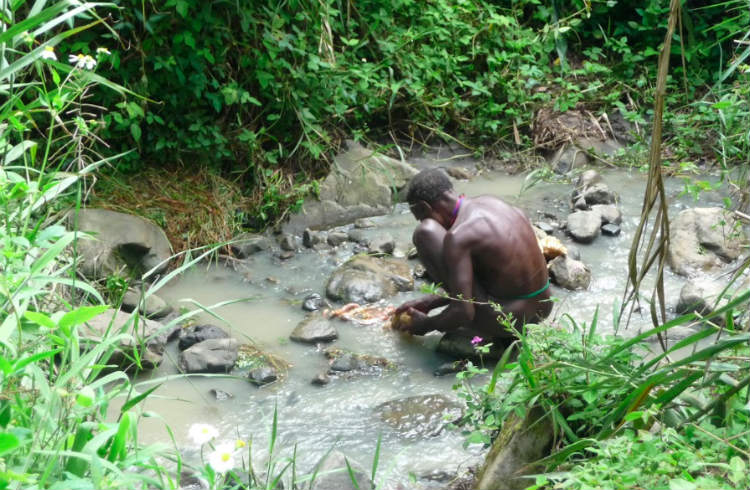
Audrey Hills travels the world with her husband and toddler surfing all the great breaks. She has a blog Surf Stoked Moms.
Resources & Links
As mentioned in Travel News the first non-stop flight from Australia to the UK – what’s this journalist’s verdict?
Scholarships Newsletter: Sign up for scholarships news and see what opportunities are live here.
Follow World Nomads on Instagram for the latest stories, and #WorldNomads for your chance to be featured.
Want to Talk to us?
We want to hear from you! If you have any travel insurance questions to Ask Phil, want to give us feedback on the episode, or have suggestions for topics you'd like us to cover, email us at podcast@worldnomads.com
Want to Share This Episode?
Copy this code onto your web page:
<iframe width="100%" height="200" src="https://player.whooshkaa.com/player/episode/id/174722?visual=true&sharing=true" frameborder="0" style="width: 100%; height: 200px"></iframe>
Sign up for Podcast News
Explore your boundaries and discover your next adventure with The World Nomads Podcast. Hosted by Podcast Producer Kim Napier and World Nomads Phil Sylvester, each episode will take you around the world with insights into destinations from travellers and experts. They’ll share the latest in travel news, answer your travel questions and fill you in on what World Nomads is up to, including the latest scholarships and guides. The World Nomads Podcast is not your usual travel Podcast. It’s everything for the adventurous, independent traveller. Don’t miss out. Subscribe today.
Speaker 1: Welcome to the World Nomads Podcast delivered by World Nomads, the travel, lifestyle and insurance brand.
Speaker 2: There's something about the islands here that touches people so-
Speaker 3: Hopefully we make new impact in the world that people will stop killing and calling shots.
Speaker 4: It looked like snort and it smelled bad but don't let that put you off. It was good for you.
Speaker 5: Where else in the world are you going to see a condom of three meters right in front of you?
Speaker 6: No, absolutely no.
Speaker 7: Not sure if I want to see a condom of three meters in front of me.
Speaker 8: So many things in our society that are a throw-away and we see [00:00:30] those things on our beaches, on our coastline.
Speaker 9: Has anyone ever pooped themselves?
Speaker 10: Sometimes the Germans can come off as cold.
Speaker 11: I think it's important to remember what has happened but also look forward into the future and be positive about it. Then that's, I think what Germans are.
Kim: It offers travelers the opportunity to teach English to children and experience the pantomimic … That's going to-
Phil: A way of teaching English.
Kim: Yes. I could learn to speak it.
Phil: We were all told that you can't take a leak into [00:01:00] the river. You can't urinate into the river because there's a parasite that will swim up your urine stream.
Speaker 12: Yeah, Phil you're-
Kim: An idiot.
Speaker 1: It's not your usual travel podcast. It's everything for the adventurous independent traveler.
Kim: Welcome to our latest episode. We are focusing on Indonesia in this one and Phil tells me it's our 13th. Does that mean it's lucky 13th or unlucky 13th?
Phil: The lucky 13th or podcast 12A, whichever [00:01:30] you prefer.
Kim: Well I do like that. They don't have a 13 in some lifts.
Phil: Oh, or some hotels that don't have a 13th floor.
Kim: 13th floor, really?
Phil: Yep, too unlucky. People don't want the room so they sit empty for too long and they can't fill them up so-
Kim: I wonder why I haven't noticed that.
Phil: It is in actual fact still the 13th floor. It's just called 14.
Kim: That's something that we convince ourselves.
Phil: That's it.
Kim: Well we had some feedback on our last episode, which was number 12, firmly number 12 on [00:02:00] South Korea. Do you want to share that?
Phil: Yeah. Sarah who featured in the podcast about her 20-month long honeymoon, which included a visit to South Korea, she commented. She said "I've been listening to the podcast since the first Croatia episode and I love it. I've been trying to find a travel podcast that I enjoy and the topics, energy …" oh that's too good "And interviews on the World Nomads Podcast like this one is so fun and informative to listen to. I'm beyond honored to have been part of the episode," said Sarah. We were [00:02:30] honored to have you on too.
Kim: Absolutely. What great feedback and an update too on Sarah and team in their 21st Century odyssey. At the time of recording, they were in Fiji having just left New Zealand, so they are having a ball. I don't think they've had a fight yet.
Phil: 20 months.
Kim: 20 months' honeymoon. All right, let's get into it Phil. Tell us a little bit about Indonesia.
Phil: All right. It's a long chain of islands that sits in between the Indian Ocean and the Pacific Ocean. It's actually the world's largest island [00:03:00] country with more than 13000 islands. Actually, I don't think they know the full number. I've heard everything between 13000 and 17000 islands.
Kim: Wow.
Phil: One of those islands is one of the world's most popular island destinations, Bali.
Phil: Yes, thousands of islands to choose from. Though as you mentioned, we'll catch up with blogger Anthony. He's known as the travel tad and he touches on a few of those places you won't find in the guide books, so obviously some of those 13000 to 17000 other islands.
Phil: 17000 other islands, that's it.
Kim: We'll also talk to [00:03:30] Alex about … Alex is a great chap, insane guy. He was in Indonesia and he wanted to … You'll hear his story but he was in Indonesia and he wanted to have one up on his brother so he left and ended up being chased by head hunters in West Papua or Papua as he calls it.
Phil: Head hunters?
Kim: Head hunters. We will hear his story.
Phil: Now that's good enough to beat in track.
Kim: It's wild to be in track, Audrey who chats surfing in Indonesia [00:04:00] with his … Phil, your quiz question for this episode.
Phil: Yes, okay. The question in this episode, what color is the Eiffel Tower? Top tip is repainted every seven years and it's not always the same color.
Kim: Well that makes it hard.
Phil: What color is it presently?
Kim: Okay, so in 2018 what color is it?
Phil: Correct.
Kim: All right, the answer at the end of the episode.
Phil: I figured there were two types of travelers in the world Kim, those who go with friends and those who go alone. Our first guest is in the solo travel camp. She [00:04:30] visited 21 countries, including Indonesia, on five continents in the solo journey that lasted 28 months and began with a one way ticket to India. What happened to her along the way changed her outlook on life and inspired her to be a life coach and the author of the book Facing Freedom, which is on Amazon, there is the free plug. Welcome to the podcast Eryn Donnalley.
Eryn Donnalley: Thanks Phil. Thanks for having me, great intro.
Phil: Thank you. What was it that drives you? I [00:05:00] know a little bit about your back story. What was it that drove you to undertake this journey in the first place?
Eryn Donnalley: I was 36 and I was coming out of my second divorce and I was basically really unhappy and finally I went through this really kind of dark period of depression and that was not the first time. I really had this moment where I was looking at myself and my life and the choices I've made and I had this kind of moment where I realized I was the one causing [00:05:30] the problems in my life. I was just tired of hurting myself and other people and I really just decided I need to look at this and see what this is before I carry these patterns into the second half of my life.
Phil: Was it obvious to you that travel might be answer that you need to go travel or was that kind of the consequence of all of this turmoil in your life?
Eryn Donnalley: Yeah. It was sort of more the turmoil and I think it was more [00:06:00] the need to just remove myself from my own surroundings and environment just so I could … I felt like I couldn't breathe. I mean I had been to India a couple of years earlier on a yoga retreat and that itself was a real kind of fluke for me because I was not a traveler. I didn't grow up with a traveling family. I'd never traveled on my own before until this, the big trip we are talking about. Because I had gone to India there was fear as before. I really did kind of have this [00:06:30] calling. I just had this intuitive force that was telling me "You need to go back to India."
Phil: So the initial plan was to take off some sights and complete a bucket list but something happened pretty early on. You met somebody pretty early on that changed that plan?
Eryn Donnalley: Yeah. I mean I did. I just … It wasn't like an intentional thing like I want to check things off a bucket list but I realize now just part of mentality, that's the way I was sort of groomed here. It wasn't like an intentional thing that I must check off all these [00:07:00] things but luckily, I did. I met a girl, she's actually from Sidney. She's the one I was visiting. I met her on day five of my trip. Siggi is her name and she turned out to be a really pivotal person in my life overall but just at that time particularly because she had solo traveled before. She was like "Babe, why are you so eager to go to a different country already? Just hang here and see what happens, wait till … You know when it's time to leave" and I'm like "Yeah" but it was also like a fear thing Phil, [00:07:30] honestly. I had this sort of perceived idea that I have to pre plan everything because that's going to keep me safe because solo traveling as a woman, I was extremely frightened.
Phil: Did it prove to be true though?
Eryn Donnalley: Really, there were all fears within my mind. I mean the … I had all great experiences. It definitely caused me to question beliefs, my limiting beliefs. I love this quote from Mart Twain, he says "Travel is [00:08:00] fatal to prejudice, bigotry and narrow-mindedness and many of our people need it solely on these accounts. Broad, wholesome charitable views of men and things cannot be acquired by vegetating in one little corner of the earth all one's lifetime." I didn't even realize I held certain views that I held. It wasn't until I'm standing in the Domestic Security line in the Indian airport where I'm in the Delhi Airport where I'm like "Oh my gosh, I am freaking out right now. I'm the only Western woman in this line." I hadn't [00:08:30] even left the airport yet and I was frightened but yeah it did prove to be, the world proved to be a good place. I mean we do have to be smart, we have to be careful.
Phil: Give us a bit of a rundown on some of the places that you've been to.
Eryn Donnalley: I think the most confronting was India and Tanzania but India I think was my favorite because there was just so much spiritual growth and unique experiences and the culture is just so beautiful. I mean Italy and Ireland, they are beautiful for [00:09:00] scenery and wine and just gladness, wonderfulness with gelato and things like that. Indonesia was beautiful. I loved the music and the culture and the rice patties. Brazil was interesting. I was there for about five weeks of seeing a spiritual healer in the middle of kind of nowhere in Brazil.
Phil: It's interesting that you mentioned Tanzania as confronting. What was it about Tanzania?
Eryn Donnalley: Well we were just … Now at this point I was actually [00:09:30] traveling with someone. I had a romantic relationship with someone while traveling and so he and I went together to Tanzania and we were traveling in the southern part in the very rural areas. We were in the north where Serengeti is or most of the tourists so it was just … There's a lot of need there and so just going to the bus terminal to catch a bus in Dar es Salaam we were bombarded by a hoard of men who were just … [00:10:00] They were desperate to just get us on a bus but when it's five in the morning and it's dark and you only have head torches and you're surrounded by people that are really kind of in a mob, it's sort of a mob mentality, those sorts of things are scary.
Phil: What did you do to cope with that sort of feeling of being out of place?
Eryn Donnalley: Well you just sort of deal with it but it is. It's sort of like an emotional continual stress. I mean that comes with long term travel too, [00:10:30] I mean I feel I should mention that. Long term travel seems glamorous and wonderful but it's actually quite exhausting because you are confronted regularly with the unknown basically so you just kind of deal with it. You make sure you're safe, you befriend the locals. You just kind of try and merge in as you can to the culture and you make friends and even with language barriers, you are able to make friends. I had this one woman in Tanzania, she came up to me and [00:11:00] we couldn't speak at all but she just walked right up to me on this dirt road and held my hand and she walked with me for about 10 minutes. We held hands and she tried to talk and I tried to talk and of course it didn't work and then she just kind of skipped off and left. There are some really beautiful experiences when you just put yourself in another country.
Phil: That gets us to your book, Facing Freedom, and the … I suppose you've kind of given yourself a new mission now. You want to try and help people to find themselves the way [00:11:30] that you have as well, is that right?
Eryn Donnalley: Yeah, that actually is. I'm really sort of promoting that people take this sort of inward journey so they find out who they are and so they can be the best versions of themselves.
Phil: Do you think traveling is a very large part? I mean you can take this journey itself, discovery at home I suppose but do you think travel aids it, makes it easier to do that?
Eryn Donnalley: I think it definitely does because [00:12:00] just like the Mark Twain quote, when you step out of your own society it's almost like … If you really observe, it almost … You start to take on this anthropological job where you're sort of observing yourself in new cultures and then comparing back to your own country and saying "what is it that I like about what we do and what I don't like, how we handle things?" In that way travel was the vessel [00:12:30] to get me to see these things. Yeah, the work can be done at home and hopefully it will be because I think that's really an important cause and not everyone has the opportunity to travel. I think they can be linked but they can be independent of one another.
Phil: Give us some tips for somebody else who may want to try and follow in your footsteps. What would you say to somebody who is going to say "I'm going to for a long time, just one way, I don't know when I'm coming back," what's your advice?
Eryn Donnalley: [00:13:00] I think one thing that's really important, and a friend gave me this advice, have … Be clear with your intention when you leave. Why are we going, why do we go? There are many different reasons but that's one advice, is to kind of check in with yourself. For me, I understood that my staying in America was somehow running from myself and so for me traveling was the most direct path back to myself but that's not going to be the case for everybody. [00:13:30] Pick a place you feel comfortable with. Pick somewhere you feel safe, where you can get a good start on your own.
Kim: Great advice there and a couple of things Phil. Firstly, you and Eryn share the same Mark Twain quote on traveling.
Phil: That's right, "Travel is fatal to prejudice." He goes on for much longer but that's basically the cracks of it.
Kim: Secondly, we've got links to Eryn's book in our show but traveling on your own doesn't always go to plan Phil, as we hear from World Nomads contributor Alex [inaudible 00:13:59] who was chased [00:14:00] by headhunters in a recent trip.
Alex: This was during my trip through the Bali valley and I met a really great guy, his name was Isaiah. There was some communication difficulty and this was because his English was pretty broken so it took me a while to establish from him that I didn't actually have a huge amount of money and I wanted to make as much progress as I could. On day two he basically said to me would I like to take a short [00:14:30] cut? Up to this point I'm thinking it would be pretty easy and I could do it and it would be no more challenging than it had been up until that point so I said "Yeah, let's go for it."
This is actually just after we had finished climbing over this really deep village with extremely rapids below us and became very quickly that the way we were now going to go was going to get a lot harder a lot quicker. We kind of veered off the path and we ended up climbing up about maybe [00:15:00] 700 or 800 feet of a rain forest. I remember at one point I actually looked on a map to see where we were and it was just a get big green spot that's says "Jungle" and there was literally nothing else around for miles to see. At this point this is me, Isaiah and his friend whose name I never actually got told.
Basically on the day that we left, Isaiah looked up at this young lad who didn't speak any English and just introduced him as his helper [00:15:30] and I never really found out why this young lad came along with us. I actually think he was just doing a bit of a solid and getting a bit of extra pay work. I think I was under the assumption that if anything went wrong, there was an extra pair of hands but as it actually turned out, it was the helper who had to watch out the most because after we got to the top of this hill, we kind of quickly descended back down and back into the jungle, which was quite disappointing for me, having to spend half a day climbing up and to [00:16:00] very quickly see no progress, get lost.
At the top it's pretty phenomenal actually. It was literally like stepping back in time and seeing something, the foreman and even being around, every single direction. As far as I could see, it was just jungle so it was really impressive and it was well worth the climb, which was great and we kind of sat there for about 20 minutes chain smoking cigarettes. There's no any alcohol in West Papua, which I only found out when I got there. It was a horrible shock after [00:16:30] a long stressful journey to get there. I went to the bar and they had all these spirits behind. I was like "Give me your cheapest drink." They were like "No, this is actual … This is all decoration."
"We can't serve the alcohol." I was "No." We climbed back down the hill and by the time we got to the bottom and after several hours of literally hiking through this rain forest, beating lots of innocent paths to death to make our way through. It was getting pretty dark and quite suddenly I turned around and realized that the helper was actually … He had [00:17:00] vanished and I was like "Isaiah, where is your guy?" He looked at me and we had about 10 seconds to exchange quite a nervous glance and in my head I was thinking what hazards even are there in Papua jungle? Is there quick sand? Are there deadly animals? Honestly I had no idea. It had only been a last minute decision to even go there, a couple of weeks before so I hadn't really done much research.
Kim: From where though Alex? Sorry.
Alex: What's that, sorry?
Kim: From where [00:17:30] was the last minute decision?
Alex: I was in Bali at the time and it was pretty much a drunken moment decision. I was in a big group of people at a hostel I was staying and a map of Indonesia and I was thinking where is the craziest place I can go? Oh, West Papua. I don't even know much about that but every time I hear people talk about it, I'm like "Yo, West Papua the last … Go there." I kind of stood up and drunk and is aid to him "I'm going to West Papua." I was like-
Kim: Who is coming?
Alex: [00:18:00] Yeah, literally but I found it was only going to be me who was going but was committed at that point. Because of that, I hadn't really done much research and I wasn't really … A lot of them it was … I was kind of learning as I was going along. We just found out that Isaiah's friend disappeared but before we even really had time to discuss what happened, we heard shouting and weeping up ahead. It was almost [00:18:30] like hearing kids play but suddenly out of nowhere, it wasn't kids. It was seven guys, completely naked, dawned up in black wall paint and they were carrying bows. They had spears, which were literally like the spears about two or three times long as I was tall.
Watching the way that they balanced these, holding them on their sides as they ran through the jungle was just phenomenal to be honest. They were completely barefoot as well. They screeched to a stop in front of us [00:19:00] and there were all these … What I can never quite forget is the way that one of them particular looked to me and he was quite young and his mouth kind of hung open in amazement like he had never seen a Westerner before. I was just standing there quite awkwardly trying to give him a wave like hello [inaudible 00:19:16]
Kim: Are you good?
Alex: When they turned the attention to Isaiah and started to talk to him in Papuan, I had at this point absolutely no idea what was going on. [00:19:30] The talking kind of deteriorated into shouting and suddenly the conversation came to a completely stop and they went tearing off past us and disappeared into the jungle. I remember watching that as they went thinking wow, if one of those guys was chasing me he'd catch me in about 10 seconds. There was just no way I can outrun that. Isaiah up to this point, he had been really chilled out, friendly guy, he was always laughing, [00:20:00] he was always smiling. Even when I would be exhausted, he would just be doing the splits over some powerless job like eating berries off some bush.
Kim: As [inaudible 00:20:09]
Alex: Yeah [inaudible 00:20:11] as a sign of a helpful guide eating berried when you're almost falling into a death but this time he looked really worried He looked at me and he says "Now we have only a big problem. My friend, he is from Yali tribe. They are at war with Yalis." Suddenly it came back to me that a lot of the guides [00:20:30] I'd actually been speaking to before him had actually refused to go through this area because the fighting had broken out between some of the tribes, which apparently is a really common occurrence. Isaiah had seemed very up for it so I said "Okay, great" but now he said we had a big problem and he said "If they capture him they will kill him because he's from the Yalis."
"If they come back and they can prove that I was with him …" and I was thinking shit, how are they going to prove that? They will kill me and then he said "They would catch me" just [00:21:00] as an afterthought "Then maybe they kill you too." I was kind of standing there thinking shit this has gotten really serious all of a sudden. This has gone from being just a day of tracking to maybe a life or death scenario and I was just about to ask "Okay, so what we do?" Do we go back for the guide?" He took off and he went sprinting through the jungle and I forced myself to learn to keep up but I barely could. Up until that point in the day he had always been waiting [00:21:30] for me to catch up and everything was great but now he was just sprinting and I have a bag on my back.
Earlier in the day I'd actually picked up a fossil about the size of a dinner plate, a bag and I was convinced it'd be worth loads of money and I later found out it's worth nothing but it was pretty heavy as well as all my other stuff. That was making me feel quite physically sick at this point and we went into the jungle. We crushed through [00:22:00] the river, the main bit, which actually cuts through the Bali. It can go from anything from about as wide as a stream to really wide but we did that for about … It felt like maybe an hour and it was getting dark and dark the whole time. We went crashing through this river up to our waist. I was soaked at this point and quite suddenly, the jungle that we'd been going through it disappeared around us and we were out in the clear again and that was the strange thing about Papua.
One [00:22:30] minute you could be right in the thick of the jungle and then the next minute it was almost like plains land, grassy. We came out of the jungle and in front of us was another mountain, it wasn't as high as the one we'd climbed and I looked up at the top and I actually thought I could see smoke spiraling up towards us. I was thinking maybe there are people at the top. Just as that happened, we actually heard quite away back. We could hear shouting [00:23:00] again and Isaiah turned around and he was peering to the jungle to see what it was and I was thinking are they coming towards us?
As we heard the shouting again behind us, Isaiah started to burst "Go" and we went tearing up this hill that was actually an old track going up but we just sprint up the side. We got halfway up, we turned back and Isaiah was looking again and he was looking further back down the river to see if he can find something, I assumed but he couldn't. I remember seeing him shake his head kind of sadly, which made me [00:23:30] think that's definitely not a good sign when that happens.
He turned around and sprinted up to the top of the hill and I remember chasing after him getting to the top and literally collapsing on to my knees and kind of feeling like I was going to pass out. That was probably … If we hadn't got there at that point, I was running on fumes by then. Fortunately however, at the top of that hill there was [00:24:00] a fresh tribe of funny people and we suddenly found ourselves surrounded by kids, dogs, adults and they all looked very funny. They were going "Wah, wah, wah" and wah means welcome in Papuan and Isaiah looked really relieved and he was hugging some guy and I was thinking to myself okay, I guess we've made it. I guess we're safe.
Kim: Yeah, we're safe.
Alex: Hurrah, we lived. I was thinking this will actually will make a really cool ass [inaudible 00:24:28]
Kim: [00:24:30] When you said you went to Indonesia, were you with mates?
Alex: I had done a tour with my bother Will who is a broad backpacker so he's pretty well known in travels and he'd just done his first tour around Pakistan and I went to help him out. That was three weeks long. That was a great experience but it was quite a lot of hard work and after that and after that we were like "Do you know what? We need to go somewhere chill and just unwind." At the time that I had the idea to go to West Papua, I was with my brother and I guess another reason that I decided to go, I was thinking my brother [00:25:00] has done so much cool stuff. I was thinking how can I annoy him, how can I go somewhere that he hasn't been? I know, I'm going to further east than he's ever gone and that will really piss him off. That was kind of one of the reasons I was inspired to go.
Kim: What's next for Alex?
Alex: Well actually I've just gotten a job at a sea life center so I'm currently trying to earn some funds to go traveling because after Papua and [inaudible 00:25:25] and Bali, I'm completely skinned.
Kim: Amazing story Alex. You're a crazy guy. [00:25:30] We share some great peaks in our show nights but right now it's time to check in with our World Nomads. What's the best thing about traveling?
Speaker 13: I would say adventure because you can discover the world. Sometimes we think the world is just mostly where we live but there are so much different cultures around the world. It's very interesting to know about it. You learn a different language. You learn about a different place and you meet different people, different foods. [00:26:00] It's amazing.
Kim: Where are you from?
Speaker 14: Richmond, Virginia.
Kim: How long have you been traveling for?
Speaker 14: I've been traveling about two years now.
Kim: What do you like about it?
Speaker 14: Honestly, going out on things, going out on a limb, experiencing things, throwing myself out there more than anything. A lot of people when they travel, they worry about where they are going to stay. They worry about money and everything and safety but I mean you just get out and just do it honestly.
Kim: All right, checked in with our World Nomads, tick. Now time to check in with Phil [00:26:30] and travel news.
Phil: There has been a lot of brewed ha-ha, one of my favorite words, in Australia this week as the first nonstop London to Perth service begins. Perth by the way is one of the state capital cities in Australia on the far west coast. The excitement centers on the fact that the flight is scheduled for 17 hours and 20 minutes nonstop. One journeys on the flight, not back to free business class ticket to see what the experience was like in economy. The verdict? Like any other [00:27:00] long flight, longer. By the way it's not the longest scheduled flight in the world. Doha to Oakland in New Zealand is almost an hour longer, like 18 and a half hours.
Kim: If you were traveling from … You mentioned where Perth was, which is on Australia's far west coast. If you were traveling to take that flight from Australia's east coast, it's better if … It wouldn't be worth it.
Phil: No. It's a trans-continental flight. It's like traveling from New York to LA to catch a plane to go somewhere when you can do it from the east coast so-
Kim: The English love Perth so it makes-
Phil: English [00:27:30] love Perth.
Kim: Makes perfect sense.
Phil: Let's carry on, more new. A United passenger has scored the jackpot after being selected to be bunked from a Washington DC to Austin flight. $10000 free flight vouchers, much better than being kicked in the head and forcefully removed or being placed in the overhead locker and suffocating to death. Nice one, United. You can get the hang of it.
Kim: Or in Australia if we bumped up a flight we get some vouchers [00:28:00] for a drink of water and a sandwich.
Phil: Nice.
Kim: $10000.
Phil: 10000 flying vouchers, very nice. She was on her way to [inaudible 00:28:09] party so she got … I don't know whether she got there or not. I would take that and five vouchers, would you care?
Kim: Would you care?
Phil: Anyway, have you embraced the sharing economy? Are you an Uber user and an Airbnb so why not give Grabr a go? That's Grabr, Grabr, no E, is an app that lets [00:28:30] you sell space in your luggage to strangers. What could possibly go wrong?
Kim: Oh no.
Phil: The founder says "It's a combination of a rental agency and a career service." If you're only taking a carry-on, why not sell your 25 kilo allowance to someone who wants goods brought in from overseas?
Kim: [Inaudible 0:28:49] as you said, what could go wrong?
Phil: What could go wrong? [Inaudible 0:28:53] could go wrong. Funds from Columbia, anybody?
Kim: Exactly. What about did you pack this bag yourself?
Phil: Yeah, well [00:29:00] the founder said that they found ways of making that safe and secure and you have to still comply with all those rules but I mean notwithstanding those sorts of difficulties.
Kim: They've done it.
Phil: Yeah, why not? 25 kilos … If you've got an empty suitcase, find that space for somebody else. I'll take your-
Kim: Dirty undies.
Phil: Your dirty undies and your illegal salami, whatever it is that you've got.
Kim: Why not?
Phil: A travel podcast, not this one, has named what it says is the most annoying [00:29:30] travel habit. The Flight of Fancy podcast says this is the thing that's ruining the joy of travel and what is that one thing? The crush of people around the baggage carousel.
Kim: That's why I only ever take a carry-on. I just … Seriously I get away with it every single.
Phil: Flight of Fancy says "Take one small step backwards everyone. Clear the space at the front and only move forward when you spot your bag. No pushing, no shoving, everybody wins." It annoys me.
Kim: Look, I have taken [00:30:00] luggage on board on a flight before obviously and one of the frustrating ones is when the whole family stands there.
Phil: Just let one person go and get the bag.
Phil: One person, yeah.
Phil: I have managed … I think I've seen a few sheens of cotton from my bag but anyway.
Kim: Anyway, so you agree with that?
Phil: I agree with that. I hate the baggage carousel.
Kim: Thanks Phil. Australians are big fans of travel to Bali. In fact you mentioned at the top of the episode, it's the most popular Indonesian island destination.
Phil: Absolutely it is.
Kim: Well thousands [00:30:30] of other islands are in Indonesia, between 13000 to 17000 Phil as saying because they actually haven't made out a count
Phil: Can't count them all.
Kim: That's incredible. Into travel blogger Anthony known as the travel tad Firstly, let's find out why he's called that.
Anthony: Well actually I didn't call myself that at first. Someone actually said that to me once when I had gone on a number of trips in [inaudible 00:30:53] and someone called me a travel tad and that sort of reflected the former cruiser premier, [00:31:00] Peter [inaudible 00:31:01]. He called himself a media tad, so he loved being in front of the media all the time. Since I love travelling, they called me a travel tad so I thought it was a great name to start of my blog with, so something a little bit cheeky but not too offensive.
Kim: , which is what these are all about, hey?
Anthony: Yeah, definitely. We are all about taking the piece and not taking ourselves too seriously but I found that with the blog, it's given me a point of difference I guess because I tend to write about [00:31:30] the things that go wrong in the road or all the signs that don't translate very well into English and that sort of stuff. I'm more about the quirky aspects of travel, which is right up my alley.
Kim: , which is why we have contacted you for this podcast. Indonesia really is on the doorstep of Australia and you've been there?
Anthony: Yes, I have. I've been there a number of times and I've been outside of Bali of all places. Now Bali in itself is an interesting place but there is so much more to Indonesia than Bali and [00:32:00] if you don't go and venture outside to the other 17000 islands, you're doing yourself a disservice. I've been there a couple of times and I've also gone through Sumatra and Java, which just really blew my mind. It's a little bit off the track. Not that many people go there but it's totally worth your time to have a look.
Kim: Tell us then … You said in your blog you're this guy that tells us about things that go wrong. What happened in Indonesia that you'd like to share with the audience?
Anthony: [00:32:30] I did a big trip about nine years ago now and it was in conjunction with … It's called [inaudible 00:32:39] blogger conference. What that literally means, it means blogger party and in Indonesia they are right into the blogging. There's actually sort of decent freedom of speech there and people can blog about all sorts of stuff, including politics and travel and food and all sorts of things. Now, I was invited to do a trip through Sumatra and Java [00:33:00] and stay with people n different cities or blogger communities.
What was great about it, I got to see their world and how they lived and the stuff they showed me, there's no way in the world I could have got this out of a guide book or just by travelling on my own. What I loved about it is that I was loving what the locals were doing and I just loved every second of it. The thing about Indonesia is that it's extremely culturally diverse. It's one of the most diverse places I've been to so [00:33:30] you can get through one city if you go from [inaudible 00:33:33] to Pekanbaru to Palembang and Sumatra. Then you head off to Java and you go to [inaudible 00:33:40] and Semarang and [inaudible 00:33:44]. Each one has their own culture and it has their own cuisine and sometimes its own language but just overall the people, they are so friendly and welcoming. It was one of the best trips I've ever done.
Kim: What things did you pick out by living 'with [00:34:00] the locals?'
Phil: One thing I found is that the locals are extremely accepting and tolerant. Indonesia is one of the biggest predominantly countries in the world and I remember traveling through there and spending time with people. Even though I was thinking … I was craving a beer. I was just … Out of respect decided not to drink beer in front of people but they'd come up to me and say "Oh we don't drink [00:34:30] beer but we don't care if you do so just crack one open and we'll have water with you" so it really didn't matter.
They were very accepting and very tolerant of everything and everyone and I guess they pride themselves on their hospitality. Just as another example on this trip, I was staying one of the bloggers and he then asked me "Are you doing anything tomorrow?" I said "No, not really" and then he said "Well, would you like [00:35:00] to come to my sister's wedding as a guest?" I was "Yeah sure, why not?" I had to go to Batik shirt shopping that afternoon because that's the traditional dress in Indonesia. I turned up to the wedding and did what a guest does and provide money for the bride and groom. I even had my photo taken with a praying group as one of the guests.
Kim: Wedding crasher.
Phil: I was literally a wedding crasher but I was … I didn't crash it [00:35:30] I was an invited guest and so that was really quite an amazing experience because there is no way in the world I could have ever had that kind of experience just as a tourist on my own. I did say to them "Please show me your world because that's what I want to see." I don't leave Australia to go and see more of Australia somewhere else. I'm not the kind of guy that to loosen up with the boys [inaudible 00:35:52] in Bali. That's not what I wanted. I wanted to see what people do, how they live and I'll go see Bali and have [00:36:00] a little … It's also worthy going to see all those ones that are out there. This [inaudible 00:36:04] I'd love to go to other places like [inaudible- 00:36:08] all those areas. You can spend ages in Indonesia, just in that country alone and it's like going to a different country in each island.
Kim: We'll share Anthony's blog in our show. In the meantime, Phil caught up with Audrey to chat surfing in Indonesia, which makes perfect sense given that she has a website called Surf [00:36:30] Stocked Moms.
Audrey: That's right, I have a website all about traveling and surfing around the world with my little daughter Valentina and we really just focus on all these fun destinations like Indonesia.
Phil: A) beautiful name, Valentina, gorgeous. How old is she?
Phil: She's three.
Phil: Oh, okay so how do you …? All right that's a whole sort of different set of questions as well. How do you find traveling with a three year old? Because some people put it off, it can't be done.
Audrey: My partner and I both decided that we are going to [00:37:00] keep traveling just the way we did before, with a few sort of adjustments but I find it really amazing. It's actually changed our experience in so many ways because a child is the ultimate ice breaker and basically everyone smiles at you. Everyone wants to talk to you in Indonesia, particularly in Bali but all over. They just love kids and they will take Valentina out and abduct her and take her through the whole kitchen and we are having a couple of nights dinner date without her at the time. It just really gets to you. It opens doors [00:37:30] for you almost.
Phil: I mean it can be difficult. Do you have to take …? I mean because immune systems. Do you have to take acre with that sort of stuff?
Audrey: We've definitely had our moments. We've had the horror flights with screaming and we definitely … I have a crazy first aid kit with natural remedies and then the hard stuff just in case it all fails so I always have all that. She luckily, touch wood, hasn't been sick at all. It's mostly my husband that gets sick. He's got like a severe case [00:38:00] of the man flu, ever he's always-
Phil: We do … No, it does hurt more. I'm sticking up for him.
Audrey: Nothing has happened to Valentina ever on the trip. Luke, yeah all the times.
Phil: I get the look. Let's talk about surfing. Now Indonesia I hear it takes a quarter in Australia so I'm aware of the fact that there is amazing surfing in Indonesia but other people around the world may not be aware of that.
Audrey: I mean it's pretty much world class in part with Hawaii. You have waves like Uluwatu and [00:38:30] the Mentawai Islands that are … They call them the surfing Disney Land so that's where people … They save their money their whole life to get there to surf these waves because it's waves that break over shallow reef and are most likely to have barrels and really critical sections along with waves that are better for intermediates and beginners. There's a great variety. I mean there are 17,000 plus islands there so you've got a lot options.
Phil: The Mentawai is typical to get to or …?
Audrey: Yeah. [00:39:00] Well last year we went to Telo, which is just north of the Mentawai and basically you fly … We flew Australia to Bali, Bali to Jakarta, and Jakarta to Pudeng and then we took an overnight boat trip to the islands that we went to. I think Mentawai, you can get there in a speed boat within three hours but that's from Pudeng, which isn't exactly like an international outpost.
Phil: Surfing in Bali, pretty popular as well but pretty crowded, right?
Audrey: Yeah. I went to Bali for the first time and I think it was in 2007 [00:39:30] and I thought it was the best place I'd ever been in my life and all-be-all. Then I started going back every year and every year it go more and more crowded, more competitive and just like … It just became not fun anymore. You don't spend all this money to go to a foreign destination to surf with more people than you have in the water in Australia. That's when I started searching further afield and ended up in Lombok.
Phil: Tell us about the surfing culture in Lombok then.
Audrey: Lombok is really cool because you can be in Bali [00:40:00] and basically decide in a couple of days you want to go to Lombok and pay $50 on Garuda and fly to Lombok in 20 minutes. The surf boards are free and then you get there and it's a completely different vibe form Bali. First of all, it's Muslim and Bali is a Hindu island but it's also much more arid. I guess across the Lombok street is a big dividing line between … Being more like the north part of Australia and being more tropical so everything is dry, super dry but for some reason I mean they also have really beautiful beaches. [00:40:30] All the beaches are amazing white sand, which in Bali if you're up near Kuta, Canggu area that's all like a black turned up sand. It's not the most picturesque, I would say.
Phil: Very hot on your face.
Audrey: Very hot on your face. Lombok has the gorgeous beaches and a really chilled out vibe. It's not as built up. There is no traffic. You can get on a motorbike or rent a car and drive pretty much anywhere and you don't have to wait like you do in Bali. It's just incredible, the traffic these days.
Phil: All right but you said it is a [00:41:00] Muslim island so I mean the surfing culture is a pretty strong culture in itself and quite hedonistic. How did the two meet?
Audrey: I think that Lombok is sort of evolving a little bit. I mean it is Muslim but I would say overall it's moderate. Generally speaking, it's moderate Muslim culture, meaning that it's not a super hard line sot of situation but there is a change going on sort of in Kuta and the southern Lombok [00:41:30] area that's sort of welcoming the beach culture. Not to say that you can run around in your bikini on the street or anything, you still have to be super respectful. There are a lot of younger people that are saying "Hey, tourism is bringing a lot of money to our area, a lot of opportunities to people here and also bringing all these new people" and they are becoming really good friends with … The Muslim people are becoming really good friends with Westerners and people from all over the world, which I thought-
Excuse me, has been really cool to see because when I first went there it was [00:42:00] a little more ... It wasn't as welcoming and it wasn't as accommodating for so many travelers and now they have all these little beach bars and start up things. We've actually become pretty good friends with a Muslim family that lives there and they are just super awesome cool people and a shift in perspective from what you would expect going to a predominantly Muslim area. Indonesia is actually taking a big initiative to continue to support Muslim national travel to [00:42:30] Lombok. It's actually a big spot for other people from Indonesia to come so there's that going alongside with a Western surf culture, which is pretty unique. I don't really see that anywhere else in the world.
Phil: What can we find on your website?
Audrey: On my blog, well I do a lot of destination guides to wherever I go. Most recently we've been in the Philippines, so we went on a surfing trip all over the Philippines. We just did that. Then I have a lot about Indonesia because I spent so much time there. It's also a lot of travel tips for parents [00:43:00] who want to keep surfing and taking their kids with them, like packing lists and all that kind of stuff just to get … Because so many moms want to do these trips and dads too but they are a little bit nervous and it's just goes to show that with the right information and preparation, you can survive a trip with a small child. It's not the end of the world.
Phil: A bag of Lego and a sticker book.
Audrey: Coloring books are a big thing right now but we have a girl so she sits still for longer than boys, I think.
Phil: I [00:43:30] do appreciate you coming. It's been fantastic talking to you.
Audrey: Thank you.
Kim: A link to Audrey's website in our show nights. Phil, the answer to your quiz question to wrap up this episode.
Phil: What color at present is the Eiffel Tower? They are going to be repainting it again soon. The answer is obviously brown, it's brown.
Kim: You said they paint it seven, it's been seven-
Phil: Every seven years.
Kim: Different colors each year?
Phil: Pretty much. Well they … Yeah, okay.
Kim: Versions of brown?
Phil: Well according to [00:44:00] this newspaper report, originally it was a deep red color so that they … Because I don't think it was a permanent structure. It was only for the world exhibition so they painted it red so you can see the restaurant. Then it got repainted in ochre color in 1892. In the turn of the century, they changed it to yellow. They said that was a bit too optimistic for the year.
Kim: Well I mean I can see it at night lit up very much, it's a yellow glow but not … It's crazy.
Phil: Then it was made [00:44:30] a yellow-brown in 1907 and then in about 1960, they said "Let's try and get closer to the original color" so it ended up being painted the kind of a red-brown. At present it's sort of a murky brown color at the moment but as you said, it gets lit up very night. It's got-
Kim: It's beautiful.
Phil: Magnificent light displaying so it's all sorts of colors but the actual frame is murky brown. When they repaint it this coming year, I think they might turn it back to the … More like the original color of a really bold red.
Kim: [00:45:00] Oh, nice.
Phil: Keep an eye.
Kim: I'm just trying to figure out … Obviously, I've stood at the base of the Eiffel Tower and the color is not kind of registering with me. I don't think of it as a color.
Phil: No but it wasn't steel grey, I remember that. It was actually a darker color.
Kim: No, it's not steel … Yes, a darker color but not steel.
Phil: Anyway, there you go.
Kim: That's a good question.
Phil: Pay attention next time you're at the Eiffel Tower.
Kim: Yeah, I will do that. Well that wraps up our episode on Indonesia. Please subscribe, share on iTunes, Google Play, Stitcher. You can find us on Spotify and iHeartRadio and [00:45:30] contact us by emailing podcast@worldnomads.com. Next, our feature destination is-
Phil: Tanzania.
Kim: Straight away we've got an issue. I say Tanzania.
Phil: Yeah but I'm an idiot when I say Tanzania.
Kim: Do you know that you're against the tide?
Phil: I know. It's just the word. When I look at it, it doesn't register the right way in my head. It looks like Tanzania when I say it.
Kim: Well we are visiting that country and that's next. Until then, see you.
Phil: Bye.
Speaker 1: The World Nomads podcast, explore [00:46:00] your boundaries.
Related articles
Simple and flexible travel insurance
You can buy at home or while traveling, and claim online from anywhere in the world. With 150+ adventure activities covered and 24/7 emergency assistance.
Get a quote



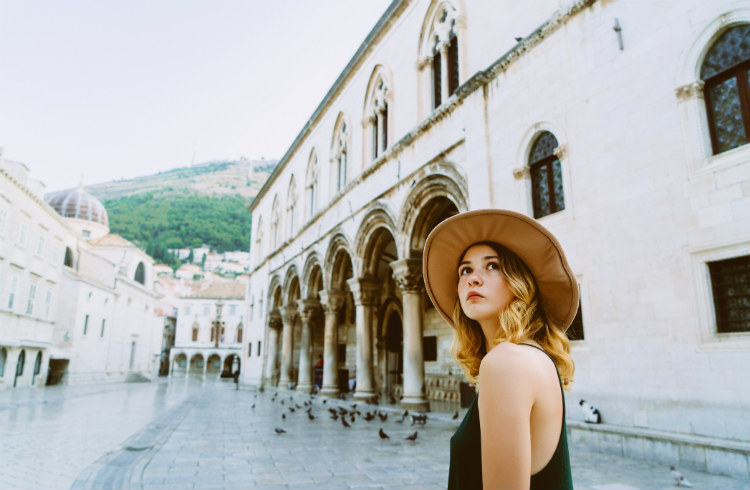
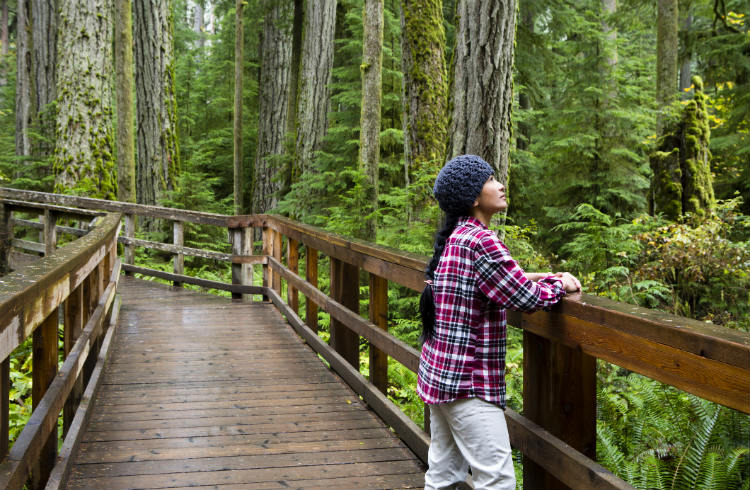
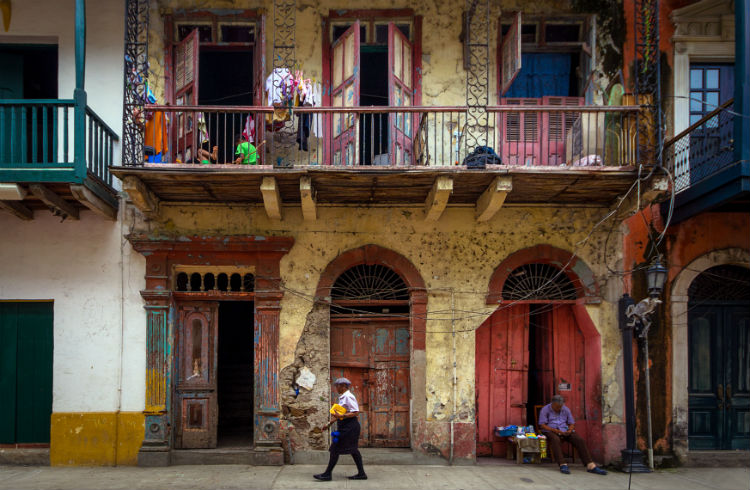
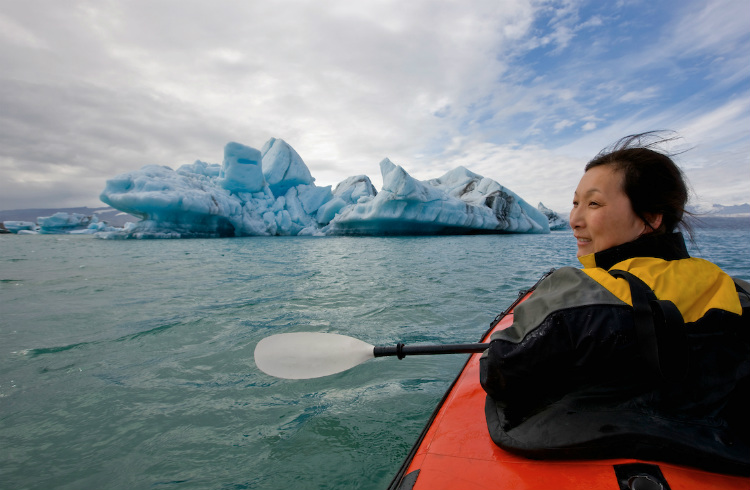
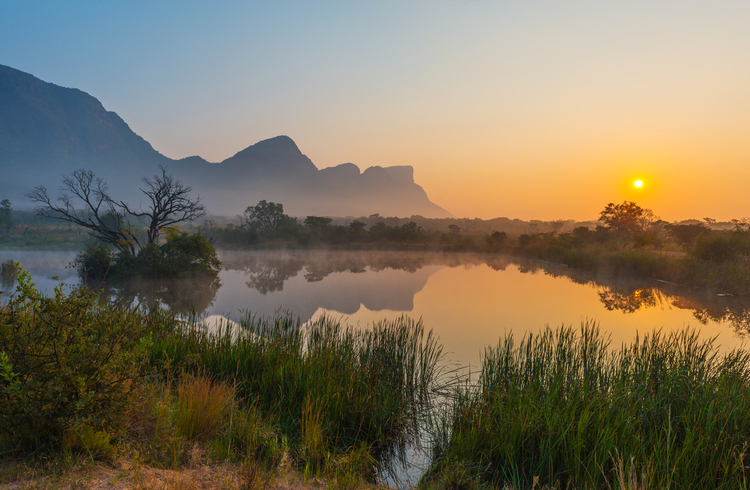
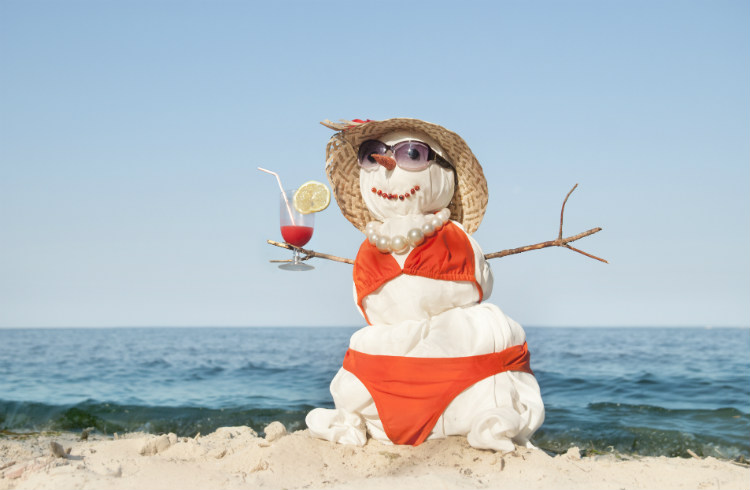
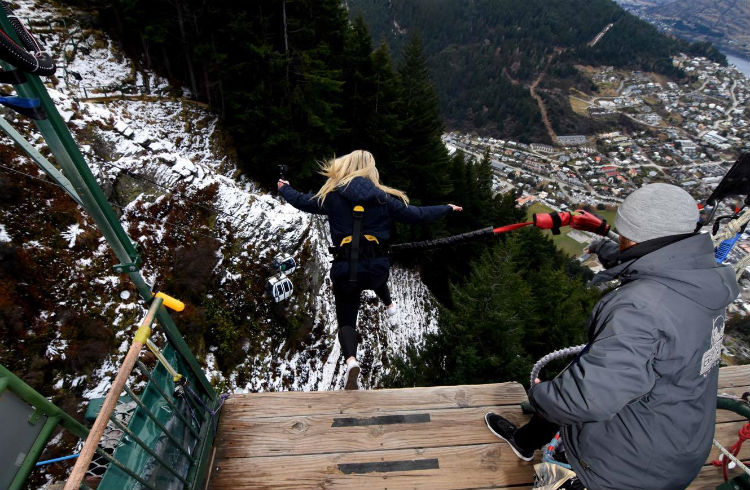
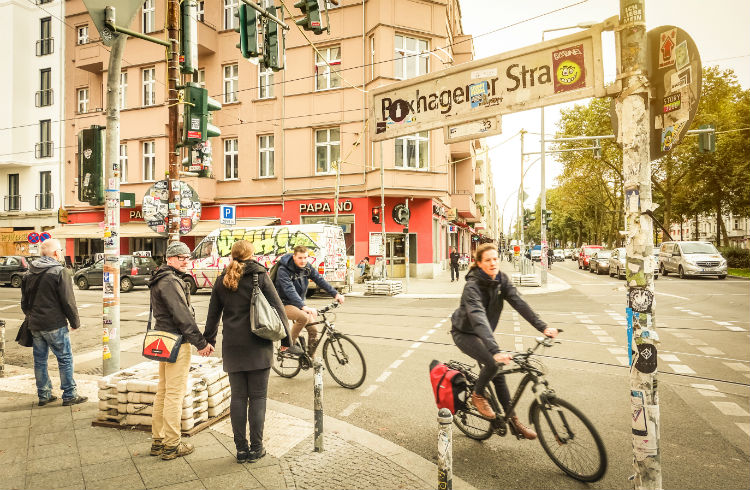
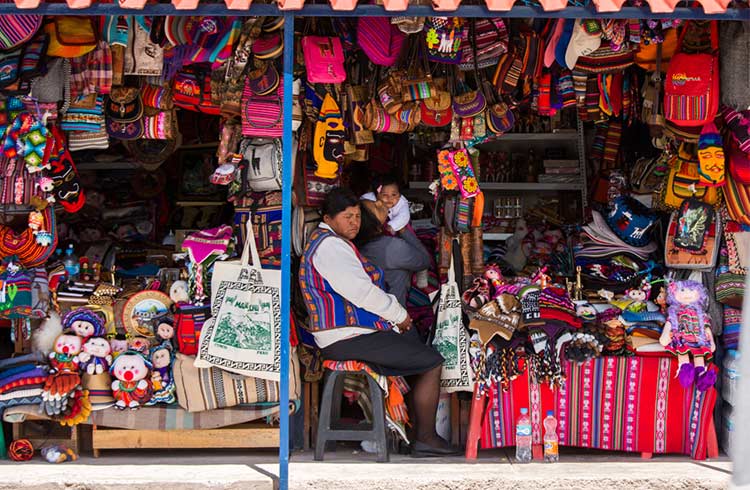
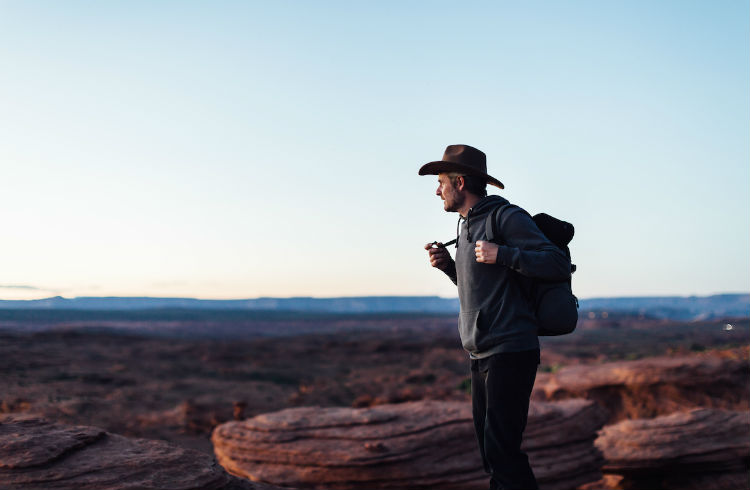

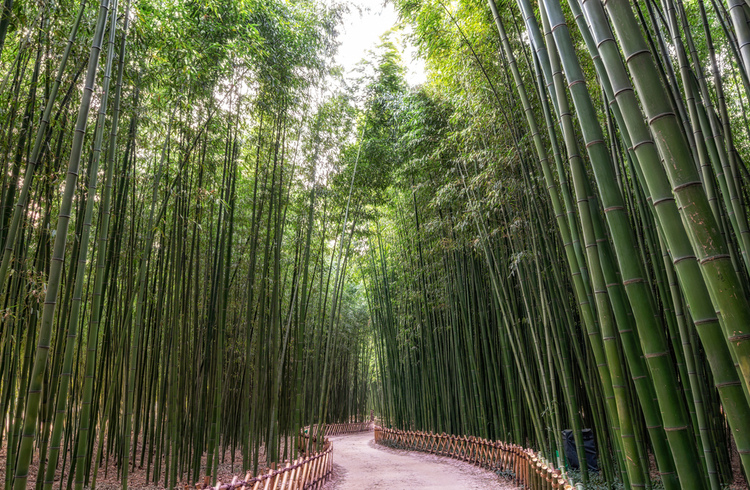
No Comments